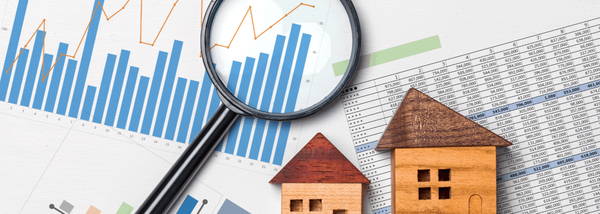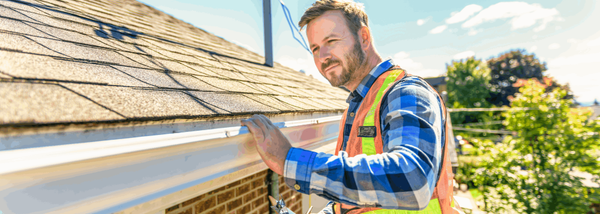
The Trade-Offs You Should & Shouldn’t Make When Searching for Your Next Home
If you're house hunting, this blog post is for you! We’ve all been there - the excitement of finding a house that we think might be perfect, only to find out that it needs an expensive new roof or features a less-than-ideal layout. With so many decisions to make during the home buying process, it's easy to get overwhelmed and just settle on the first decent house you see. But don't worry! We're here with some hard-earned advice from our experts who can help you decide what trade-offs are worth making when searching for your next home. When it comes to getting all of the features you want in your dream house, you may have to spend more than you anticipated. This is one of the more common compromises people face when shopping for a home. It can be tempting to spend outside of your comfort zone to get all the amenities you want. You have a specific location in mind. You also have a minimum square footage requirement and a number of bedrooms and bathrooms in mind. But these three factors don’t always align with the budget that you have. The important thing is that you don’t take on a mortgage loan that is too big. It is okay to stretch your budget a bit if you have the resources to do so. If you don’t leave yourself some breathing room when it comes to your budget, you are setting yourself up for a possibly rocky future. At best, you’ll be “house poor” with a lowered quality of life. There are many factors to consider when choosing the location of your new home. These factors can be a school district, proximity to work, nearby amenities such as grocery stores, restaurants, and gyms. These factors can improve your quality of life and support your property value. Locations with these factors typically become more desirable and expensive. So you may find you need to compromise with the location of your home. It ultimately comes down to your priorities. If you are most concerned about location but less with the size of your home, you may be able to compromise on square footage. Be careful when and where to play the DIY card during your home selection process. By no means does your next home need to be complete “turn-key” from the start, but consider how much and for how long each project will take you. There are differences between a small-based project such as cosmetic lighting and total renovations such as new kitchen cabinets and counters. Minor changes are the way to go when deciding between the two. If you are in a position where getting your hands dirty and taking your time to make major changes is in your best interest, and ultimately your budget, then taking the sale price discount may be the better choice upfront. Something to consider, the four most expensive home projects are typically the installation of an in-ground pool, total kitchen remodels, bathroom renovations (especially the main bathroom), and the replacement of your roof. If your buying budget and desired location are more important to you, you may have to compromise on the square footage or the number of beds and baths when selecting. That being said, you also have to consider the lifespan of your time in this home. Are you planning on expanding your family, or is this a home you will only spend a few years in? If this home is something you will only live in a few years, you may have more wiggle room as far as size is concerned. On the contrary, if you have long-term plans to stay in your next home, you may need to consider purchasing a home you can comfortably grow into. More than anything, extra space is not easily changeable without a substantial amount of money on expansion efforts. If you know you need at least 4 bedrooms to accommodate your living situation, don’t settle for a smaller floor plan. This is the kind of compromise that could cause a great deal of stress later down the road.

Going Green: How To Make Your Home More Energy Efficient
During the summer, the weather is warm, and people spend more time outside. It's natural to think about how your house can be more energy-efficient when you're enjoying more of Mother Nature (and potentially paying more in energy bills). Are you looking for a way to help reduce energy consumption and reduce your monthly bills? Simple changes to your lifestyle and a few home upgrades can help you make your home more energy-efficient. Not only will you do your part to conserve essential resources, but you’ll also save money! Now, that is one thing every homeowner is interested in. Whether you’re looking to lower your personal costs or help make your home more attractive to sell, investing in energy-efficient changes benefits everyone. In 2023, real estate agents often find that many eco-conscious buyers are looking for homes that are prepared with many of the following energy-efficient equipment options. Get started today with these simple measures to help you create an energy-efficient home in no time. 1. Upgrade Your Windows Many homeowners ignore the importance of properly sealed windows in helping to conserve energy. Older or drafty windows are common culprits of expensive energy bills. While replacing your windows may be costly, it is a wise investment that will help you save money in the long term. If you’re planning on selling your home soon, you get the added benefit of having new windows as a major selling point to tell prospective buyers about. 2. Switch to a Tankless Water Heater Today, many homeowners pass on traditional tanked water heaters and switch to tankless water heaters instead. A tankless version is far more energy-efficient, plus it will last much longer — a win-win in our book. Tankless water heaters can help significantly reduce your utility bills while also taking up far less space in your home. This is another smart investment in your home that will save energy and costs in the long run. If you’re not ready to make the move to a tankless water heater, simply reducing the temperature of the water can also help to conserve energy. You can easily adjust the temperature on most traditional water heaters with the click of a button. If you can't figure out where to do this on your water heater, give a maintenance company or the manufacturer a shout. 3. Change to Energy-Efficient Appliances Does your home have old and dated appliances that do not run well? When it’s time to replace an appliance in your home, choose one with superb energy ratings. Not only will you benefit from improved performance, but you will help to conserve energy. Outdated appliances are also an eyesore when trying to stage your home for prospective buyers, so this is another energy-saving update that will help you in the long run. Smart plugs are also one of the easiest ways to reduce phantom load, which is the energy consumed by devices that you aren't using. Try to group devices that you use infrequently, like video game consoles or stereo systems, onto a single power strip. Then plug them into an Amazon smart plug, TP-Link Kasa, or another of the best smart plugs, to turn them off while you’re not using them. 4. Consider Your Landscaping Did you know small changes in the placement of your trees and shrubs can make a difference in your energy expenditure? Especially in older homes, we often see that good landscaping can help save energy. The shrubs or greenery serve as a barrier to block radiation that warms the home in the summer season, meaning less energy is required to cool it. In the winter, the branches help keep the heat inside the house. When buying or selling a home, pay close attention to its age and the placement of plants around its exterior. 5. Add Insulation Poorly insulated homes can lead to drafts and uncomfortable rooms. Plus, insulation plays a vital role in helping reduce energy usage. Homes that are well insulated will retain heat better through the winter season. In the summer, less energy will be needed to cool the house. Insulation is an important consideration when buying or selling a home. Furthermore, it’s an important thing to tackle if you’re looking to simply reduce your energy usage over the long term. 6. Replace Your Bulbs Remember, small changes can make a big difference in creating a greener, more energy-efficient home. Though it may seem like big projects make a more significant difference, small projects matter too. Replacing your light bulbs is a simple task that goes a long way. Compact fluorescent lamps (CFLs) can use up to three-quarters less energy than standard incandescent bulbs! This big difference goes a long way.

How Proximity Affects Your Home Value
Location, location, location. You’ve definitely heard how important this is in real estate — and that's because it's true! Location is a crucial factor when it comes to the value of your home. Not only does what part of town you are in matter, but what is physically near you can actually help or hinder your property value. We put together a list of the most important proximity factors that will increase as well as decrease your home value. Factors that increase home value Factors that decrease home value
Categories
Recent Posts










